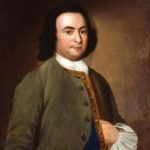This short video examines why some Founders have been “forgotten” by subsequent generations. Some individuals, like John Dickinson, found themselves “on the wrong side of history”. Others, like Samuel Adams, played no further role on the national stage. Professor Daniel Dreisbach explains how an early death (e.g. George Mason) or a minimal written record also contributed to some Founders being “forgotten.”
The Constitutional Convention of 1787
In this unit, students will examine the roles that key American founders played in creating the Constitution, and the challenges they faced in the process. They will learn why many Americans in the 1780s believed that reforms to the Articles of Confederation were necessary, and the steps taken to authorize the 1787 Convention in Philadelphia. They will become familiar with the main issues that divided delegates at the Convention, particularly the questions of representation in Congress and the office of the presidency. Finally, they will see how a spirit of compromise, in the end, was necessary for the Convention to fulfill its task of improving the American political system.
Defining Classroom Citizenship
The founders understood that, in order to preserve their liberty and happiness, and that of future generations, the foundation of successful self-government was citizens who understood and applied certain virtues. They constructed the U.S. Constitution according to their study of the principles and virtues that were most necessary to sustain a free, prosperous, and orderly society. This lesson is ideal for the first day of school.
Fame and the Founders
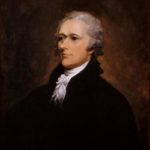
This short video explores the Founders’ understanding of fame. As understood by men like Alexander Hamilton, the pursuit of fame in the 18th century meant the desire to live an honorable life of public service. Professional Daniel Dreisbach presents a clear contrast between the 18th and 21st century’s notion of fame.
Founders Online
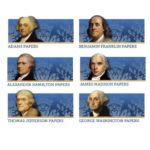
The website brings together the papers of six of the nation’s Founders (Washington, Adams, Jefferson, Madison, Franklin, and Hamilton) into one searchable database. The site has taken the content produced by teams of historians and documentary editors who have worked for many years to transcribe and annotate thousands of primary source documents from hundreds of sources and publish them. The website combines all these document transcriptions and annotations into one free online resource.
Religion and the States: Why the Constitution is Silent on God
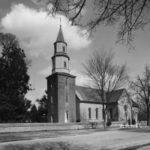
This short video explains why the Constitution is silent on religion. The Founders believed that religion was a matter best left to the states. As Professor Jeffry Morrison notes, the Founders were not unconcerned about religion, but a belief in federalism led them to allow individual states to make decisions about religious matters.
Second Amendment: D.C. v. Heller and McDonald v. Chicago
The film “Second Amendment: D.C. v. Heller and McDonald v. Chicago” examines the history of guns and gun ownership in our society from the Revolutionary War to modern times and the complicated debate over what the founders intended when they wrote the Second Amendment. Does it protect a right of individuals to keep and bear arms? Or is it a right that can be exercised only through militia organizations like the National Guard?
How a Bill Becomes a Law for AP Gov
A lesson plan for one 80-minute class at the AP level. In it students will identify the main steps in the process of creating and passing legislation:
-Explain the significance of party control and committee work in the Congress in the legislative process
-Identify the role that Congressional leaders such as the House of Representatives and the Senate Majority Leader play in the process of agenda-setting
-Identify the role the President plays in the law-making process
-Explain the reasons why the Founders intended the law-making process to be difficult
Federalism
“Federalism” is the word used to describe the Constitution’s system of dividing political power between the national government and the states. What is federalism and how does it work? Why did the founders build federalism into our constitutional system and what are the modern debates over federalism today? Explore the National Constitution Center’s Federalism learning module to learn more!
Famous Founders
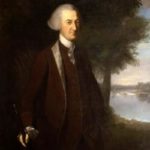
This short video expands the definition of “famous Founder.” Men like George Washington, Thomas Jefferson, Benjamin Franklin, and James Madison are readily considered to be famous. However, Professor Daniel Dreisbach suggests that individuals such as Roger Sherman, John Dickinson, John Witherspoon, and Elbridge Gerry are equally deserving of fame and honor for their contributions during our nation’s founding era.
